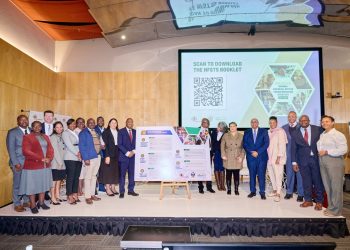
The Government Institutions Pension Fund (GIPF) is a signatory to the United Nations’ Principles for Responsible Investing (UNPRI), which are a set of six principles that seeks to incorporate Environmental, Social and Corporate Governance (ESG) factors into investment decisions.
This is done to improve risk management, generate sustainable and long-term returns, and ensure alignment with the broader objectives of society.
The Fund’s commitment to implementing UNPRI is reflected in our Responsible Investment Policy, which includes standards and procedures used to integrate ESG considerations into our investment process across all the assets under the GIPF management.
GIPF utilises the ESG management process to measure the current sustainability and performance of investment companies in specific categories.
ESG pronounces areas that characterize a sustainable, responsible, or ethical investment which determine the corporate behaviour and verify the future financial performance or lack thereof, of investors such as GIPF.
In GIPF, ESG reporting discloses (in most cases, publicly) data describing the Fund’s impact and added value in specific areas. This process is the sunshade term for sustainable and responsible finance mechanisms.
 It is a framework considering environmental, social and governance factors alongside financial factors in the investment decision-making process. Additionally, it also assesses whether the GIPF performs on each of the ESG factors and determine whether it is a viable investment.
 ESG consciousness has spread throughout many facets of life, and many investment companies are making a great effort to align with these principles.
These efforts have likely contributed to the steady rise in the media coverage afforded to “sustainable†brands over the past few years. The way business is conducted suggests a similar growth in a desire for what is characterized as “sustainable” or “responsible investingâ€.
Globally, the percentage of both retail and institutional investors that apply environmental, social, and corporate governance principles to at least a quarter of their portfolios jumped from 48 per cent in 2017 to 75 per cent in 2019.
While directing investments based on one’s values has been around for decades, discussions between investment advisors and their clients about ESG investing have become common place. GIPF uses the ESG process to minimize the Fund’s investment risk by weeding out unsustainable companies with obsolete practices and harmful side effects as they invest in more responsible companies with a greater likelihood of succeeding in the long run.
This process is not only a framework that financial institutions and investors should report on; but also on the radar of employees, regulators and everyone involved in the ecosystem. Purely because phenomena, such as the coronavirus outbreak, climate change or the recent Riots in South Africa, make us realise that we are not masters of our planet but rather stewards of the natural capital, human capital and good business principles.
ESG is taking on an even greater significance considering these recent events: companies have the responsibility and resources to accomplish positive climate action, building a more sustainable, resilient future for all. Generally, ESG is a subsection of non-financial performance indicators which includes sustainable, ethical and corporate governance issues.
 Examples of non-financial performance measures are measures such as workforce development, management of a company’s carbon footprint, labour efficiency measures, ensuring customer satisfaction, producing timeous; unqualified annual financial statements and leadership (having suitable board representations with value-added multidisciplinary skills which ensures systems are in place to certify accountability).
These factors, in investment considerations, are used in risk assessment strategies incorporated into both investment decisions and risk management processes. Some might call ESG an investment philosophy; others might call it core values.
When a business wants to act sustainably, it acts in these various areas of interest represented by ESG factors to yield value to its investors. In conclusion, as an institutional investor, GIPF inspires to position itself to be at the forefront of these efforts. To the end, the Fund will bring other partners on the journey and collaborate in connecting people, resources, and ideas to drive innovative solutions and will continue to make sound & sustainable investments, which act in the best long-term interests of our beneficiaries.
*Cacious Siboleka is Manager: Investment Services at the GIPF











